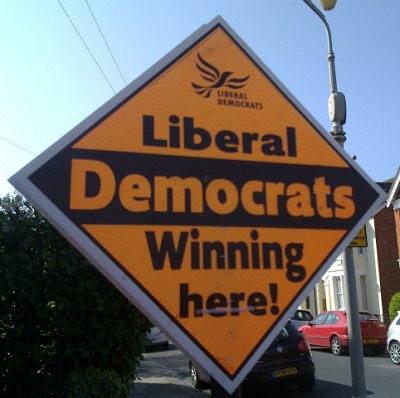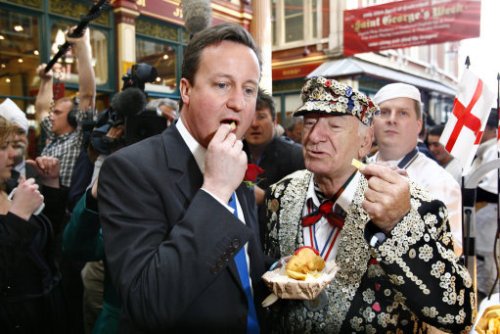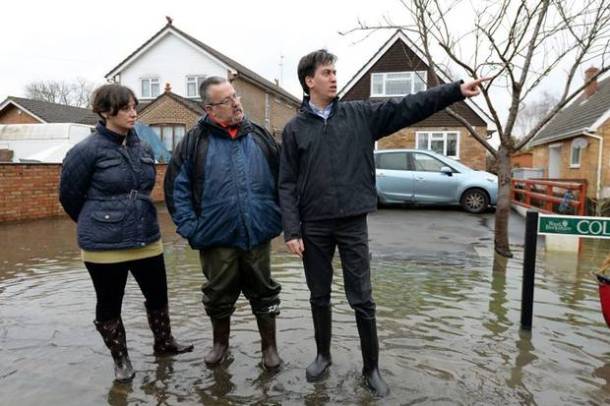There are, in the history of television, extremely few moments like this one, where the heart and soul of an entire generation is swept up in the rapture of a shared experience that becomes the defining memory of an era.
Cosmos, which opens declaring itself to be standing “On The Shores of the Cosmic Ocean”, is on its own a watershed. This is the series that not only made PBS, but codified the documentary as at least I remember it and changed the face of not only the popularization of science, but of science itself. It really is astonishing to look back and see how so much of the discourse we now associate with science can be linked directly to Carl Sagan's ethos and positionality. Because this is what makes
Cosmos so special and why it remains relevant and valid over thirty years later when the world it came into and spoke to now belongs to some long-distant and half-forgotten mnemolic time-spacescape: And even though his perspective has been frequently misunderstood and his name invoked in vain by the many, many people to come in his wake, the fundamental and provocative radicalism of his voice still resonates, and is what allows
Cosmos to remain so powerful.
Carl Sagan is a fascinatingly marginal figure, and in retrospect it's sort of odd that he was the one to break out in the way he did. Famously too speculative, imaginative and spiritual for the scientific establishment, yet too grounded in hard science for UFOlogists and true believers, Sagan occupies a curious, and unenviable, no-man's land in scientific discourse. But yet in many ways it's this nomadic isolationism that helped him reach such a staggeringly huge audience: Sagan wrote and spoke with the voice of a poet and a mystic, yet fiercely committed to the scientific method, he was in many ways the only personality positioned to take science education in this direction. He's of course far from the first to fuse science and mysticism: John Muir did it, and J. Allen Hynek, Jacques Vallée and Steven Spielberg accomplished it masterfully quite recently with things like
Passport to Magonia and
Close Encounters of the Third Kind. Going all the way back, what were the ancient navigators if not science mystics?
But Carl Sagan was the first to take this approach and apply it to science education, at least on such a grand scale. Carl Sagan wasn't just a science popularizer or even the
greatest science popularizer-He was
the science popularizer, all stop. Nobody who has tried to follow in his footsteps has come remotely close to emulating what Carl Sagan did. In some ways Robert Burnham, Jr. is Sagan's anticipation in this regard, but, let's face it, try as he might (and he did, mightily)
Burnham's Celestial Handbook was never going to be embraced outside of an extremely small subset of amateur astronomers. No, what Sagan understood was the power of television as not just a forum for teaching and learning, but as a medium where communal images could be experienced together. Riding both the Fortean wave of the 1970s and the mainstream concern over technoscience dating back to the immediate postwar era, and posessing the further good fortune of landing right at the time the landscape of television was metamorphosing,
Cosmos became a deft blend of media trends both old and new.
But
Cosmos is not merely a triumph of timing and good luck: Yes, it is in many ways perfectly suited to its moment, but this is a show with a truly staggering scope and powerful message to deliver. Even once you get passed the achingly heartfelt poetry of Sagan's introduction and thesis statement and into the meat of the series itself, which is where the cracks in
Cosmos' central premise start to become apparent, its breathless love of and commitment to this message and the ideas it deals with is enough to sustain is thirteen episode run all on its own.
Cosmos confidently declares that it tells the story of “all that is, or ever was, or ever will be”. This is not just a show about teaching astronomy, or physics or stroking NASA's ego (though it does do all of those things), nor is it even a history of scientific experimentation and knowledge (though it tries, commendably, even if it seems to have bitten off a bit more than it can chew in this regard). This is a show that's trying to tell us that we are one with the rest of the universe, and that understanding this is the key to unlocking enlightenment and discovering our role within it.
It's this simple statement that I think is what I take away from
Cosmos most of all. When Sagan describes life as “a way for the Cosmos to know itself”, it sends chills down my spine because it's so true and so elegantly phrased. This is the sort of thing I remember the most about this series: I can't say that
Cosmos was particularly life-changing for me, in that it completely changed the way I looked at things and permanently shifted my worldview. No,
Cosmos works on a much subtler level for me: It gave a voice to ideas, concepts and images that I had always kept in the back of my mind and articulated them in ways in never could. I think all good art does something like this, and while I don't quite consider
Cosmos my model for nature documentaries, I do think it works stunningly well as a work of art and an expression of Carl Sagan's positionality. Despite its foibles and flaws (which the show does, unfortunately, have its share of),
Cosmos hits at a solitary kernel of truth that transcends even the show's own status as a landmark in science popularization to convey something not quite “human” (or at least not entirely) but, well...cosmic.
What strikes me as the most interesting about
Cosmos as a material television programme is its structure: It's obviously divided into different chapters, with the first serving as a kind of abstract (much like an academic paper or, appropriately enough, a clock). The thing about this is, I've always felt the show starts to lose focus after a few episodes and than doesn't actually manage to reclaim it until very near the end, and this, to me, has the uncomfortable consequence that only the first episode, “On The Shores of the Cosmic Ocean” is actually required watching: It summarises everything the show is trying to say succinctly without going off on tangents and makes its point so successfully and memorably that in my opinion it frankly overshadows the whole rest of the series. And actually, to be really blunt, you really only need to see the first half hour. And, of that, the opening seven minutes are seven of the most utterly perfect and indescribably moving and powerful minutes ever put to film.
(Seriously, don't take my word for it, stop reading this and
go watch them right now if you haven't. You can skip Ann Druyan's opening narration that accompanies every version of
Cosmos released since 2000-We'll talk about her later.)
It's after this initial seven-and-thirty minutes that, sadly, “On The Shores of the Cosmic Ocean” goes a bit off for me. Which is fitting, given that this episode is such an effective microcosm for
Cosmos itself. After making one of the most profound and beautiful statements in the history of television, Carl Sagan then proceeds to spend the remainder of his runtime trying to recount the Epic Narrative of Science, and his Western bias is painfully noticeable. There's a great deal of time spent lionizing the Classical era, in particular the ancient Egyptians and the Hellenistic Greeks, namely Alexander the Great and the Great Library at Alexandria (and the requisite Orientalist shot that modern Alexandria “shows little trace of its former greatness"), which then dovetails into a frustratingly textbook account of the teleological March of History. Sagan tells of the burning of the library, symbolizing the loss of knowledge and the regression of the Dark Ages, which isn’t even historically accurate, and a glorification of the European Renaissance for rediscovering said lost knowledge, which is even less historically accurate. And naturally, it all leads to the wonderful future promised by NASA where we'll all take our next steps out into the stars. And this is as far as Sagan ever gets, either in this episode or in the rest of the series.
Astronomy as we know it is, of course, an extremely Western field and has a worrying track record of erasing the contributions of nonwestern peoples (in particular the pre-Christian Europeans, Native Americans, aboriginal Australians and the Polynesians), but
Cosmos' Eurocentrism really stings because it's in every other respect so universal and makes incredible strides elsewhere: Sagan's repeated use of the phrase “great men and women” is a godsend in and of itself, and his segue out of his Journey of the Imagination segment to the montage of human faces of all cultures and creeds is a lovely bit of inclusivity. But, his frustrating inability to move beyond the Great Man Theory and a teleological attitude about history does real harm to the potential impact of
Cosmos as a TV series. It's hurtful not just because of its obvious hegemony, but because it's a tragic and needless squandering of potential:
Cosmos was absolutely capable of painting a more diverse and accurate picture of the history of humanity's interaction with the natural world, and that it not only manifestly doesn't do this, but indeed props up the dangerous pre-existing Master Narrative about the march of Great Western Science is not only a wasted opportunity, but one that saddens me because it overlooks so much that I find fascinating about science, history and culture.
(Furthermore, just on another personal note, Sagan's constant slighting of astrology rankles me: He's right that in its modern form it's a pseudoscience, but stopping there ignores the shared history of astronomy and astrology and astrology's own unique cultural weight that's worthy of study for it's own reasons.)
And yet we should be careful not to let ourselves fall into the same trap Carl Sagan does by equating all of
Cosmos simply to him. While he was the presenter and the obvious breakout aspect of the series, he was only one of three co-writers, along with Ann Druyan and Steven Soter, the former of whom is a producer and the latter of whom is an astrophysicist himself. It would be a mistake to overlook their contributions, especially given Sagan's own admission that one of the the major impetuses for him to do
Cosmos was his growing impatience with hard science. Druyan, it must be said, for her part was extremely good at overseeing Cosmos the pop culture phenomenon: Aside from the show itself, there was a companion book written by Sagan, a series of soundtrack releases and even an “Official Cosmos Store” overseen by the “Cosmos Company” that sold things like the “Cosmosphere”, a small disc that emulated what the sky looks like on any day of the year at Midnight or Noon if you happened to live around 45 degrees latitude, which I suppose is only to be expected. And yes, I do own both Sagan's book and the Cosmosphere myself.
But for my purposes the two people who contributed the most valuable and memorable things to Cosmos aside from Sagan himself are not his co-writers. One is Vangelis, whose album
Heaven and Hell provides the soundtrack for most of the show, including the absolutely iconic and breathtakingly poignant theme song. Vangelis' work is a revelation, effortlessly fusing classical music, 1980s electronica, prog rock, jazz and pop into a unique ambient soundscape that is not only a perfect articulation of
Cosmos' underlying message and heart, but also anticipates in many ways where Dennis McCarthy will eventually go with his scores to
Star Trek: The Next Generation and
Star Trek: Deep Space Nine.
Speaking of Star Trek, the second person is a young, fresh-faced VFX artist by the name of Rick Sternbach, who did some of his earliest TV design work as a storyboard artist and set designer on Cosmos as the show's Assistant Art Director, for which he won an Emmy Award in 1981. During this time, Sternbach also did some work for
Star Trek: The Motion Picture (
Cosmos was filmed between 1977 and 1980), but he's eventually going to become best known for his work as one of the chief technical advisers and design artists on
Star Trek: The Next Generation,
Star Trek: Deep Space Nine and
Star Trek Voyager.
Sternbach is, quite simply, one of the most important creative figures of the coming era, and, given how he and Mike Okuda are responsible for a great deal of the look and feel of Star Trek from now until 2001, it's absolutely crucial to get a handle on their perspectives. Though Sternbach and Okuda didn't design the USS
Enterprise NCC-1701-D or its sets themselves (credit must go to Andy Probert there), they were responsible for helping realise them into a physical form and, as it pertains to
Cosmos itself, it's already clear there's a lineage from the elegant, organic curves of Carl Sagan's Ship of the Imagination and the “worlds of ice and stars of diamond” adrift in the “cosmic dark” to which it travels to the new
Enterprise and the images and dreams to which it too will soon voyage.
And yet even so, it feels difficult, and in some ways wrong, to try and reduce Carl Sagan's positionality fully out of
Cosmos. One thing I've always loved about this series is how blatantly and upfront Sagan is about his perspective and opinions-He's not at all making any pretenses to objectivity here. Like any good teacher, Sagan can deliver and convey information, but he's more interested in making his audience think and freely offers his own take and musings on the material he's covering, with the implication we're meant to do the same. And it's the very fact that
Cosmos is in truth so bound up with Sagan's personal positionality that allows us to attribute the majority of the praise, and the blame, for what the show ultimately does to him.
Much of Sagan's professional scientific output consisted of calculations concerning the viability of human space travel and hypotheses about xenobiology, which have become central to endeavours like SETI. This would explain, for example, Sagan's attitude about extraterrestrial life, which was radical for the time in establishment science, but perhaps not entirely satisfying for others. Sagan did seem to believe firmly that humanity's destiny lay in space travel, and though
Cosmos does explicitly shift discourse about nature and science to an extent, it is hard to shake the feeling Sagan's fixation on this hampers the show a bit: For Sagan then, the “cosmic ocean” was perhaps not quite as the Polynesians would have seen it, as a symbol of the necessary and harmonious interconnectedness of all parts of the universe, but as literally that: An expansionist and naval metaphor for boldly going out and charting new places to be heroically discovered. And this, unfortunately, makes a good deal of
Cosmos feel a bit dated and naive thirty years later.
It's also telling that Sagan chose to name his show
Cosmos, that is, the opposite of Chaos (in other words, Order-he even explicitly says this in the first episode) and went with
Heaven and Hell as his soundtrack, an album very much in keeping with a Dante-esque Pop Christian conception of the titular worlds. William Blake, for one, would not approve, that's for sure. Revealing as well is Sagan's frequent allusions to clock-making and “the machinery of nature”, an extremely Western conception of nature that relies upon technoscience and technofetishism alike (it's the "God the watchmaker" argument with the God bits filed off). And yet even so, there is an undeniable raw and anarchic mysticism to
Cosmos that I'm not sure Sagan himself ever truly came to understand: There is, after all, a reason that in spite of everything Sagan remains beloved by the Forteans, and the visible sense of wonder he displays when he takes his ship through the “cosmic waves” and talks about how “we are made of star stuff” says it all for me. Sagan himself even mentions “the music of cosmic harmonies”.
Carl Sagan was, above all else, a technoscientist who eventually realised where the end result of his scientific inquiry would ultimately take him. And his entire oeuvre, beginning with
Cosmos, is simply his way of working through these ideas and attempting to articulate what he discovered about himself and the cosmic whole-After all, the show is subtitled “A Personal Voyage” for a reason. That his work itself is as tentative and uncertain as he describes our “first steps into the cosmic ocean” to be is at the very least appropriate and unsurprising. Human art is by definition flawed and imperfect, but even so it works when it connects and resonating with people.
Cosmos has managed to do just that, and the elegant truth it stumbled upon and embraced as its message earns it a place among the most meaningful statements human artists can teach.













